What is Context Based Coaching?
Context-based coaching is a coach approach that is tailored to the specific context or environment that an individual is faced with. It involves understanding the unique challenges and opportunities that are present in a particular problem domain, and developing coaching strategies that are relevant and effective in that context.
In the healthcare industry, for example, context-based coaching might involve working with healthcare professionals to develop critical thinking, manage polarities between values and policies, and tapping into the kind of resourceful leadership skills that are particularly relevant in a fast-paced, high-pressure, and sometimes chaotic clinical setting.
In the technology industry, context-based coaching might involve helping individuals to navigate the complicated to complex – rapidly changing landscape of technology and innovation. Balancing the tension between putting out fires, modernization, and keeping the lights on, while also handling disappointments of “shelved products”, talent shortages, reducing tech debt and developing the skills needed to stay ahead of the curve.
In the finance industry, context-based coaching might involve helping individuals to develop strategies for operationalizing all tasks, managing risk and being proactive about uncertainty in a constantly evolving financial landscape.
In the education industry, context-based coaching might involve working with teachers and administrators to develop strategies for engaging students in an increasingly digital and technology-driven learning environment. It may also help with handling the complexities that come with a study body that demonstrates increased mental health, neurodivergence, or a diverse range of needs associated with equity and belong.
Overall, context-based coaching is a powerful tool for individuals and organizations across a wide range of industries. It can help each individual, team, or group make better sense of what is happening in their VUCA world, and make applicable decisions based on their contexts.
By tailoring coaching strategies to the unique challenges and opportunities of a particular context, coaches can help individuals to achieve their goals, build resilience, and thrive in their professional lives.
To date, there are very few known resources on this subject. At least not specifically devoted to Coaching through context. That said, the following resources can help one get familiar with the concept of Context – and how to behave differently – especially in more Complex Contexts.
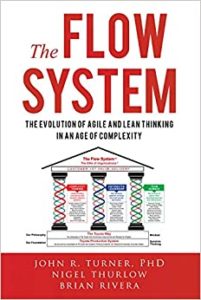 |
 |
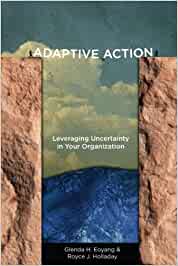 |
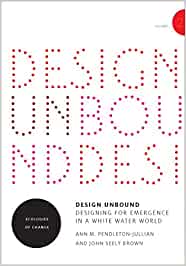 |
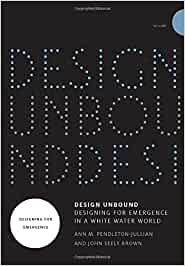 |
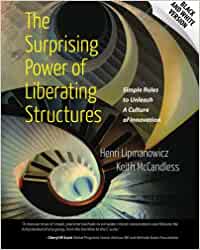 |
 |
 |
 |
How does Context Based Coaching relate to the Cynefin Framework?
Context-based coaching using the Cynefin framework as a baseline involves understanding the complexity of the environment in which an individual or organization operates, and tailoring coaching strategies accordingly. The Cynefin framework is a sense-making model that helps individuals and organizations to make sense of complex situations and to respond appropriately.
Here are some ways in which context-based coaching using the Cynefin framework might look like:
Clear Context: In a simple context, there are clear cause-and-effect relationships that can be easily understood and managed. Context-based coaching in this context might involve helping individuals to develop clear procedures and guidelines for managing routine tasks and processes.
Complicated Context: In a complicated context, there are multiple possible solutions to a problem, but the right solution requires expert knowledge and analysis. Context-based coaching in this context might involve helping individuals to develop the expertise and analytical skills needed to make effective decisions.
Complex Context: In a complex context, cause-and-effect relationships are not clear, and solutions emerge through experimentation and exploration. Context-based coaching in this context might involve helping individuals to develop a mindset of experimentation and exploration, as well as the ability to navigate uncertainty and ambiguity.
Chaotic Context: In a chaotic context, there is no clear relationship between cause and effect, and urgent action is required to stabilize the situation. Context-based coaching in this context might involve helping individuals to develop the ability to act quickly and decisively under pressure, as well as the ability to learn from and adapt to rapidly changing circumstances.
Aporetic or Confused Context: In a disorder context, it is unclear which of the other four contexts apply, and a sense of confusion and ambiguity prevails. This confusion can be addressed by breaking down the situation into more granular parts, identifying patterns and relationships, and using this information to make sense of the situation. Context-based coaching in this context might involve helping individuals to develop the ability to recognize and navigate complexity at different levels of granularity. This includes identifying patterns and relationships within the situation and breaking it down into smaller, more manageable parts.
By developing this skill, individuals can better understand the nature of the disorder, and can begin to identify and take appropriate action to address it. This can involve experimenting with different approaches, seeking out diverse perspectives, and leveraging the collective intelligence of the team or organization.
Overall, context-based coaching using the Cynefin framework as a baseline can help individuals and organizations to develop the ability to make sense of complex and ambiguous situations, and to identify and take effective action in the face of uncertainty.
How does Context Based Coaching relate to Situational Leadership?
Situational Leadership (the Hersey Model in particular) implies that in order to lead someone effectively, we need to meet them where they are with their knowledge, skills, abilities and confidence.
Knowing that with change, so too will their KSA’s and confidence, it makes sense that we should view our Situational Leadership style as one that adapts to both the present and the emergent needs of the indivdual.
Not unlike Cynefin – and with some pretty solid overlap between them, we can see that Situational Leadership allows us to put context before the person – and then support the person through that context.
Are there other Context Based methods that apply?
The answer to this is, plenty.
In the Context Based Coaching Program, participants learn approximately 2-3 different methods or approaches that can assist with their Context Based Coach approach. This teaching spans over 8 classes and equals 16 hours of foundational knowledge building.
Click the link above to learn more and consider joining the next intake.
